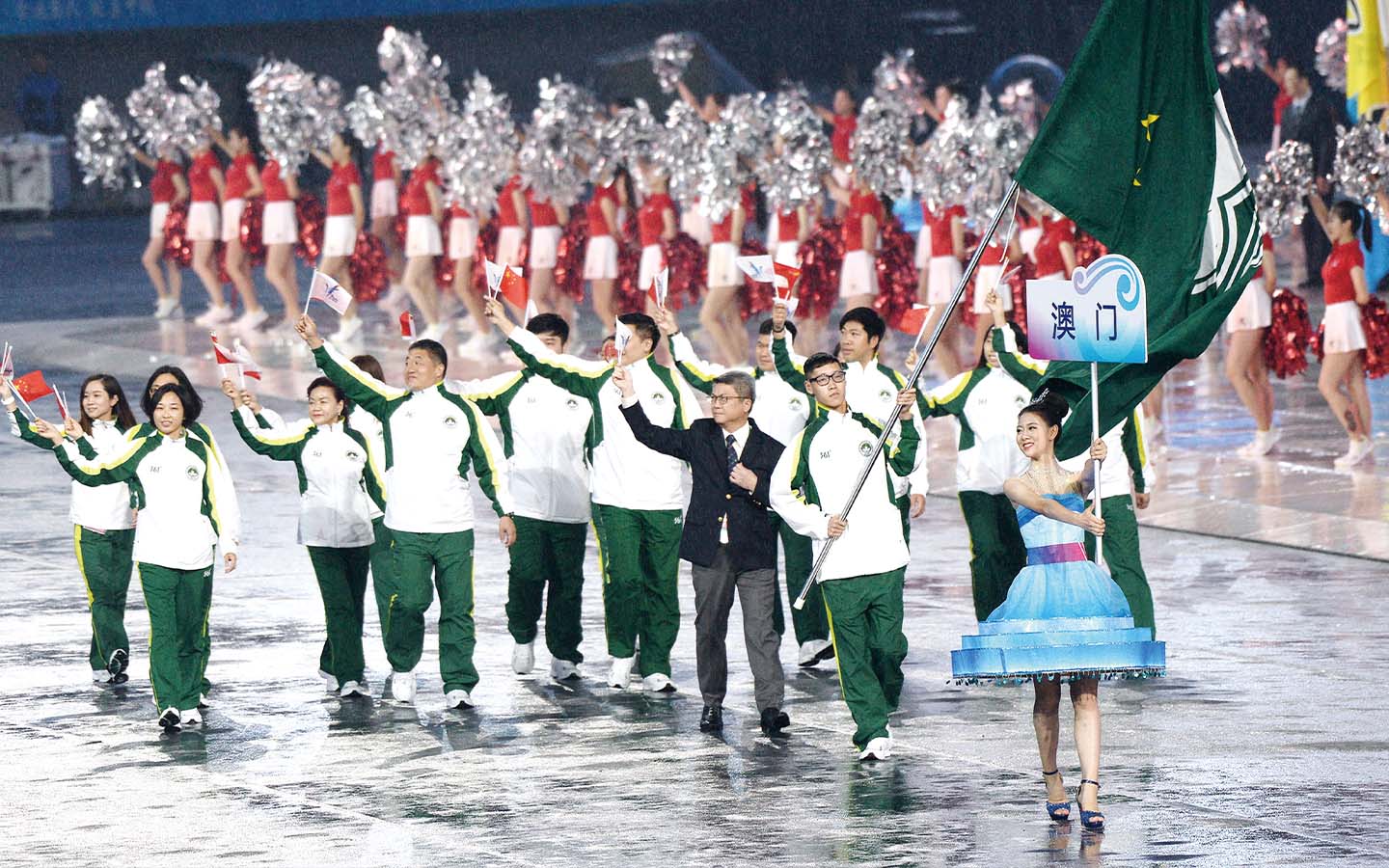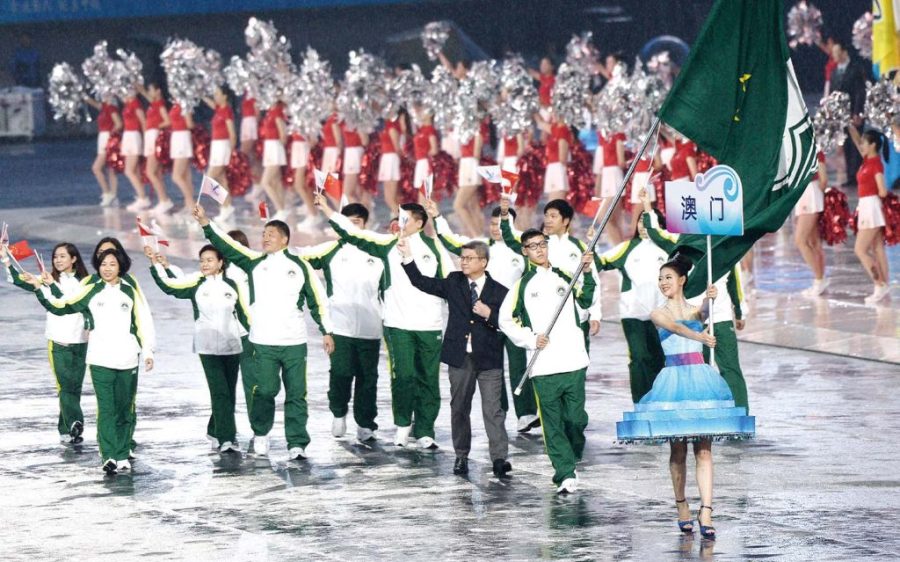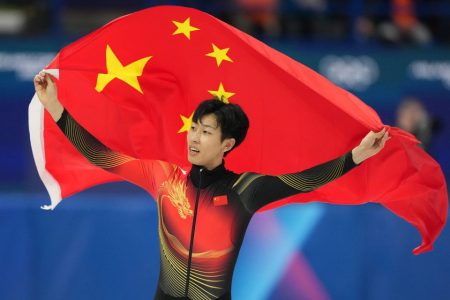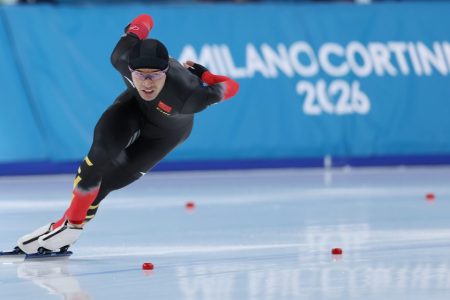When it comes to domestic sport, the stakes don’t get higher than the National Games of China. This year, they are being co-hosted by Macao, Hong Kong, and Guangdong from 9 to 21 November, when delegations from across the country will compete for medals and a place in the national record books.
Macao’s team will be taking part in 20 events at the National Games of China. We spoke with athletes from seven disciplines about the grind behind the scenes, from training tweaks to mental prep and game plans, that they hope will make the difference.
Canoe: Teamwork
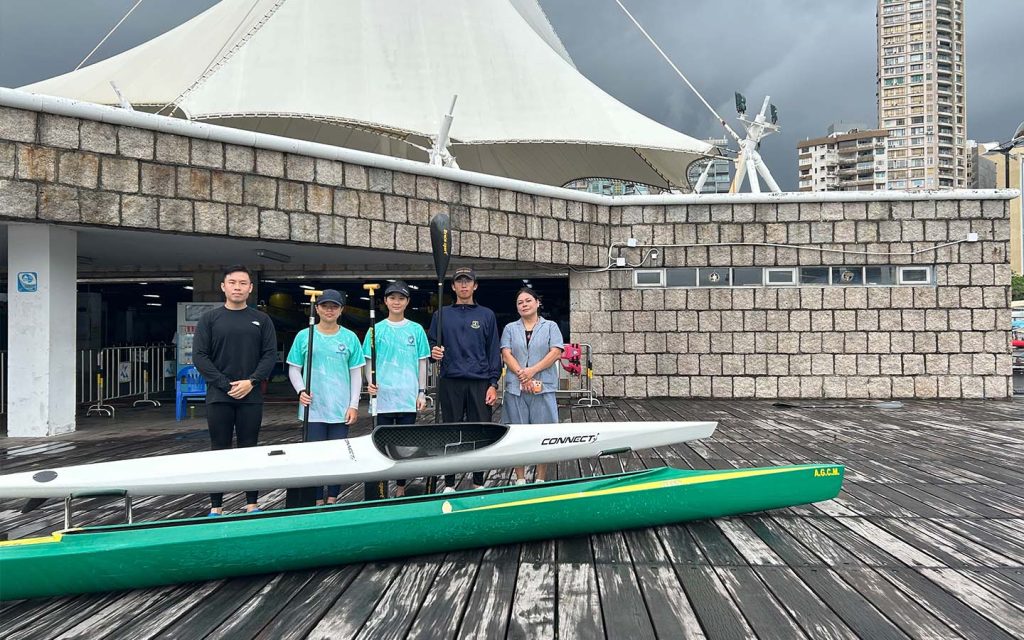
For women’s tandem canoe racer Lei Pui U and her partner Iao Chi Ham, being in sync with each other is everything. According to their coach Che Man Tou, athletes practise rowing solo by default, even if they’re not planning to compete alone. While the strategy helps coaches identify athletes’ individual strengths and weaknesses, adjusting to being part of a duo has been a bit of a learning curve, Iao said. However, “after working together for longer, it’s gotten easier.”
Men’s tandem kayak racer Eric Wong also sees team synergy as a core skill to develop before the big competition. Wong, who will be participating in the 200-metre race, has been scheduling extra practice sessions with his partner every week to brush up on their teamwork. The additional training helps them “get more in tune with one another and the techniques in competition,” said Wong, strengthening their partnership.
Coach Che said that teamwork is drilled into the athletes from the start: the entire team does warm-ups and strength training together. “We never have them stay silent,” he added, so that rowers act as a group.
Swimming: Setting goals
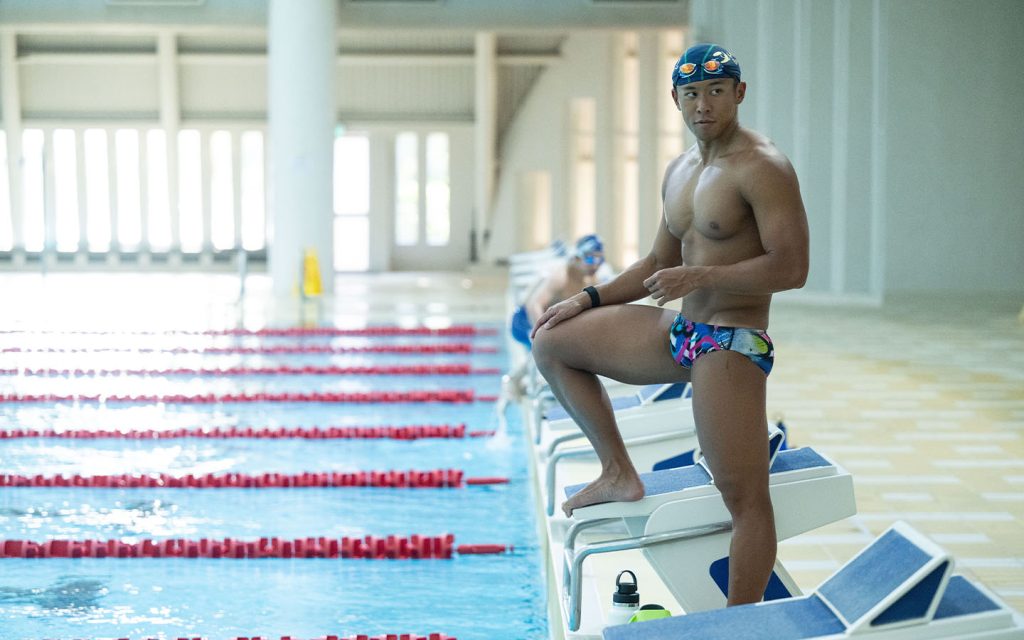
Swimmers Chen Pui Lam and Chao Man Ho are aiming high despite the saturated field in China, with both competitors hoping to get into the finals for their respective events.
For Chen in particular, the National Games of China offer a previously unseen opportunity: the addition of the 50-metre breaststroke event. “My times for the 50-metre [race] are better than the 100-metre [race],” she said, so she sees the new event as a golden opportunity to place well. The Macao record holder also hopes to set a new personal best during the competition.
This June, both Chen and Chao attended a month-long bootcamp in the United States to hone their skills, and Chao said that he’s planning to join another one in Hong Kong. Given the small competitive swimming scene in Macao, Chao said that the bootcamps provide opportunities to race against other top-level athletes. “It’s more competitive. I can find the areas where I can improve,” he said.
Chao has high expectations for himself: he hopes to add another Macao record to his growing list of accolades and get into the finals for the 50-metre breaststroke.
Diving: A mental game
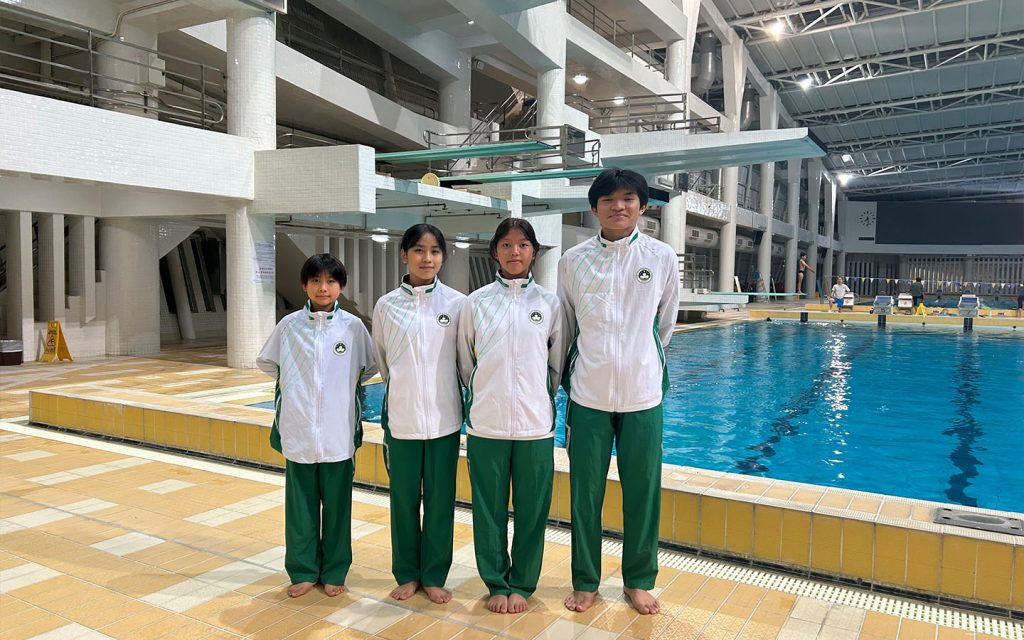
In the adrenaline-filled sport of diving, team manager Viena Ng said that a big part of gearing up for the competition is helping athletes steel themselves mentally. This isn’t a skill that can be refined under everyday training conditions, said Ng – “We join a lot of competitions, so [the divers] train their mental ability to withstand pressure,” she said, an ability that is especially important for the team where everyone is a minor.
Athlete Oscar Ho agrees: “I think the psychological preparation is why many people struggle to dive well,” he said. Ho likes to visualise every aspect of the dive, from the jump to rotations to what happens after he enters the water, in order to make sure he can execute it properly.
Ho’s teammate, Selina Pou, will be the first from Macao to compete in the National Games of China’s 10-metre platform event. The young athlete told Macao News that she also uses visualisation and has been working especially hard on clean rotations and entry into the water. For the Games, Pou said that the goal is to “perform at [her] normal level.”
Badminton: Refining playstyle
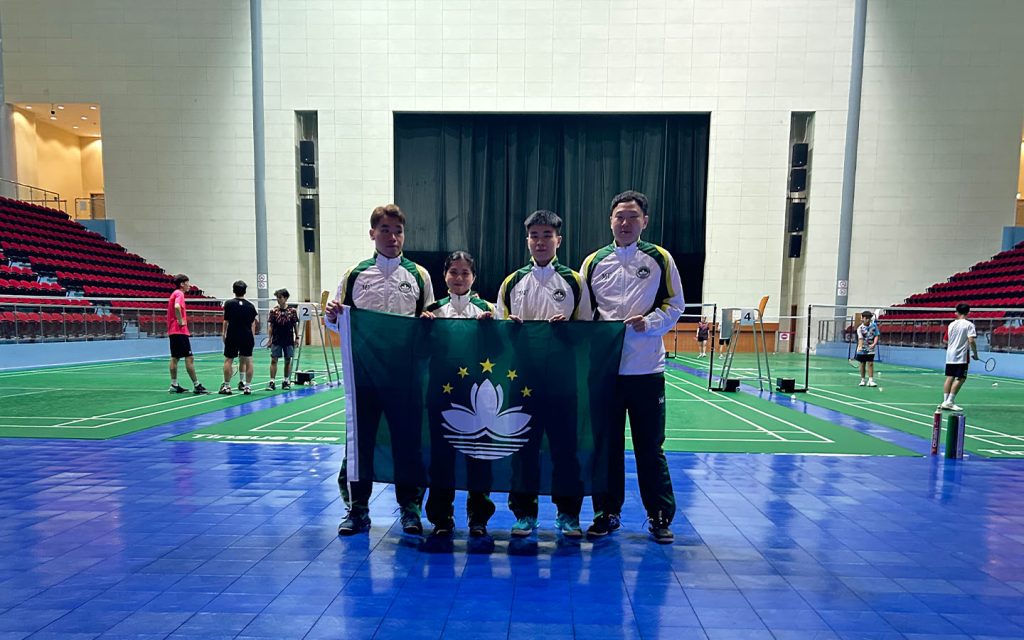
Macao’s pool of badminton players is small, so mixed doubles athlete Ng Weng Chi said that adapting to mainland athletes’ styles is a particular focus in her preparation. “This year we attended more competitions, so I’ve been trying to imitate other competitors’ styles,” she said, but Ng has also been trying to find a balance between adjusting based on opponents and playing to her own strengths.
“I’m shorter and not as powerful as other athletes out there, but I’m more agile – I’m small and move fast,” Ng said, which she plans to take full advantage of.
Meanwhile, men’s singles competitor Pui Pang Fong’s strengths lie in defence and surprise attacks, he said. “I like to watch videos of players who have a similar approach and learn from them,” Pui told Macao News.
Their coach, Li Zhe, considers developing a personal playstyle essential to playing well in the National Games of China. “We’re going in with the attitude of disrupting the opponent,” he said. “I think the precondition for that is to fully express your own [strengths].”
Triathlon: Getting fueled
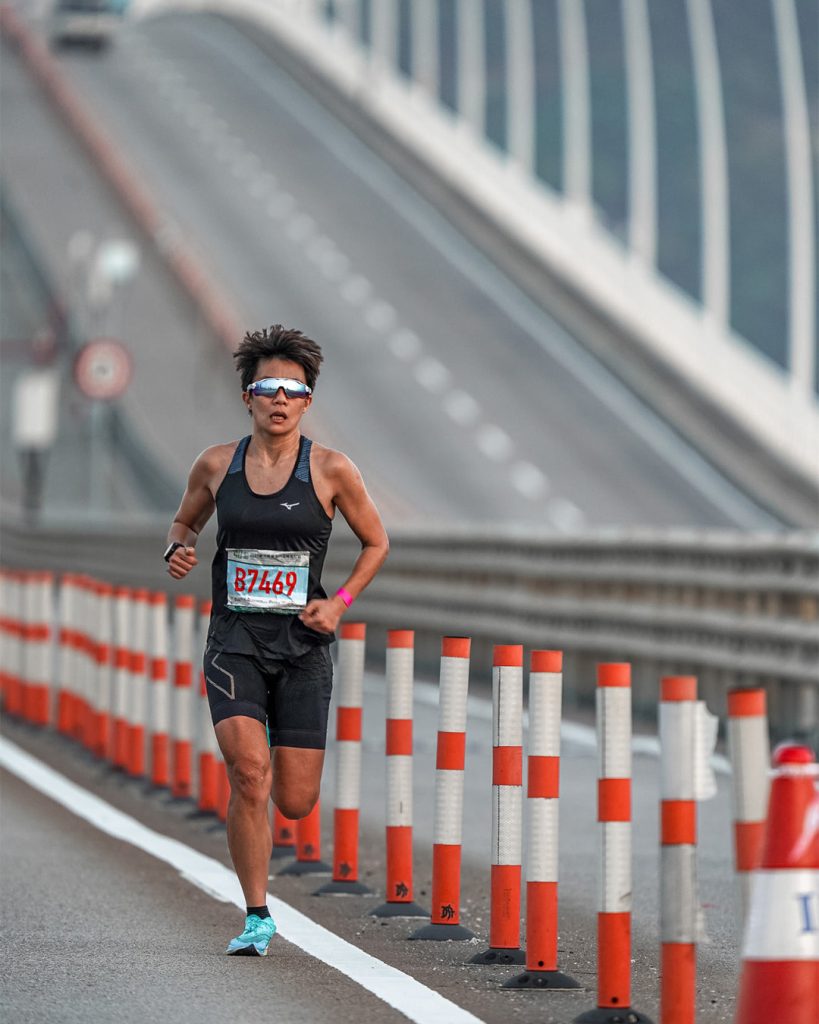
For more than two decades, Hoi Long has been the face of triathlon in Macao. She started racing in 2001 and is still on the start line. She explained that her method is to fix the weak link first.
Because many local racers fall behind in the water, she swims five times a week to stay with the leaders. She runs four times, knowing many races are decided there. Long rides land on weekends, when there’s time to go farther. Her food rule is equally direct: no strict diet, just steady eating day to day, with more carbohydrates – rice, noodles, bread, and fruit – before races to gain energy.
It is a plan built on consistency, not trends.
Cycling: Building step by step
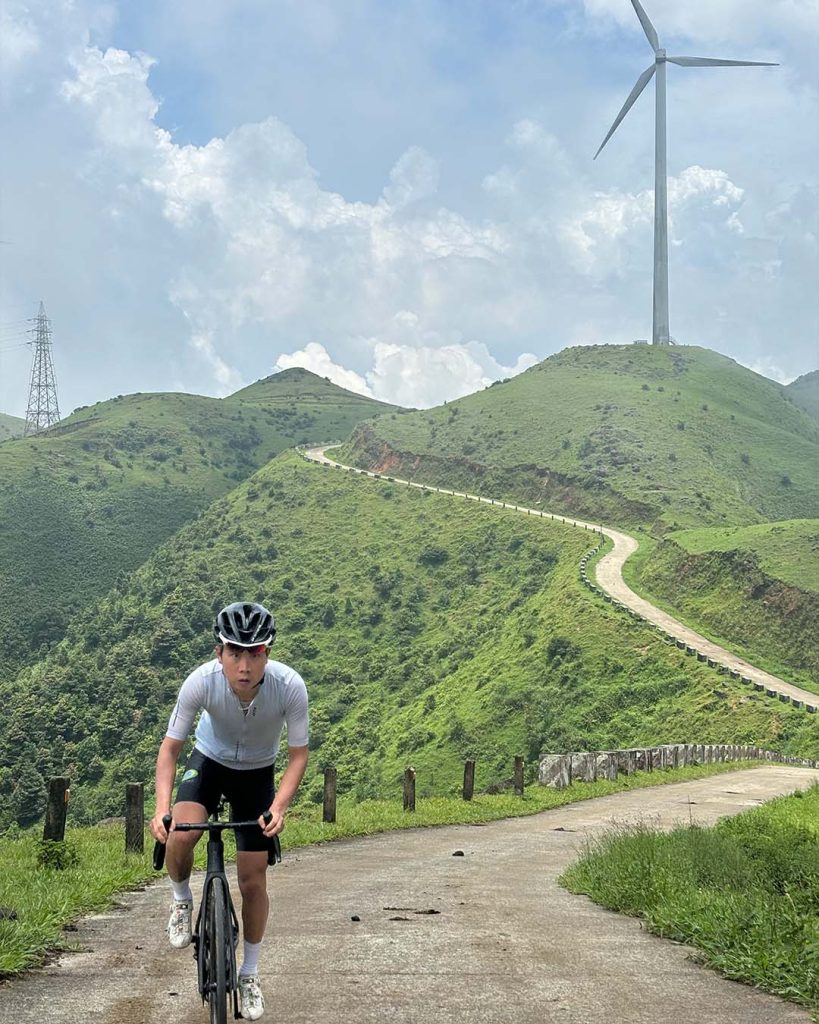
A former elite rider, Antonio Che now helps steer Macao’s national cycling team. The calendar is tight, and the roads in Macao are crowded. His answer is structure.
The team trains six days a week, starting with endurance, then adding intervals and strength work as the season builds. Riders practise for what they’ll race, including track events like the Omnium (a four-race track event where points from each race are added up). Nutrition is treated as training and it consists of plenty of carbs, enough protein, and less sugar, fat, and alcohol. Blood tests and simple guidelines keep things on track.
When traffic makes high-speed work unsafe, the team moves to Yunnan in China. There, mountains, flats, and a velodrome offer what Macao can’t – especially room to train at race speed.
Tennis: Grouped drills by player style
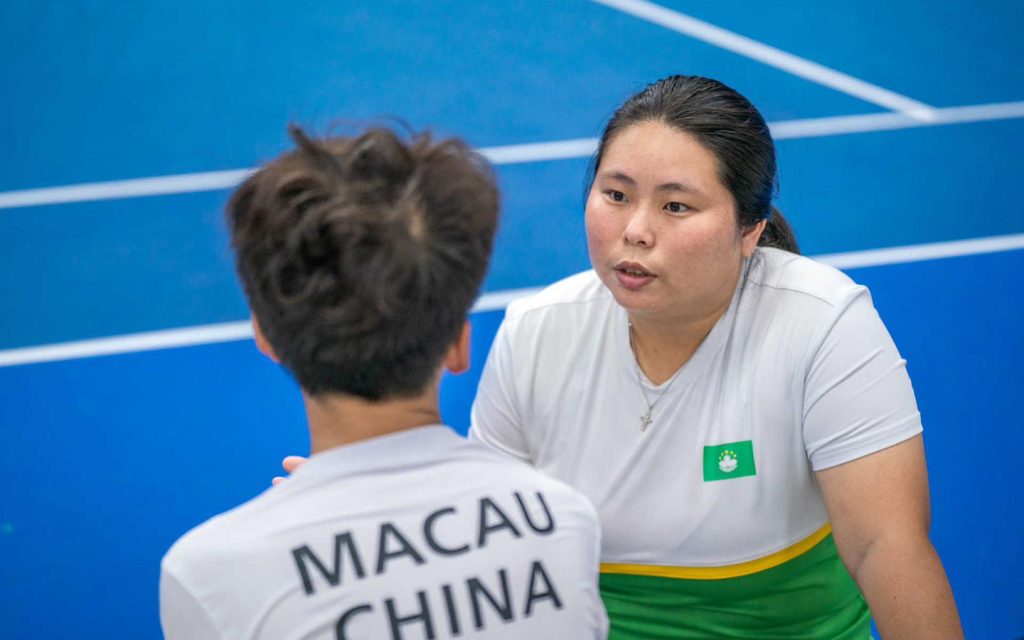
As Macao’s deputy coach, Yichi Ma blends pro experience with sports science. She has changed daily training from two hours to three or four, fitting around school schedules. Before big matches, she explained that going back to basics is key, like serve, return, footwork, and point construction. Sessions mimic the stress of real play: net work, short mental routines, a quick visual, and a simple plan become habits.
There is no full-time nutritionist. The rules are less fried food, fewer sugary drinks, steady water, and balanced plates. Players are grouped by style – baseline, all-court, serve-and-volley – so drills match their games.
– With reporting by Kayla Chan and Erico Dias
